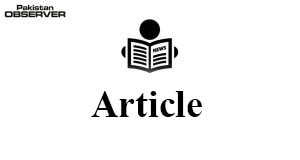Police and Judiciary
THE World Justice Project’s Rule of Law Index 2021 report (issued on Oct 2021) shows that Pakistan is among the lowest ranked countries in its adherence to the rule of law due to existence of corrupt practices in judiciary, ranking 130 out of 139 nations.
Scores range from 0 to 1, with indicating the strongest adherence to the rule of law. Pakistan managed a poor 0.39 score. Even in South Asia, Pakistan’s position is second last. Nepal, Sri-Lanka, India, Bangladesh all have performed better than Pakistan in the rule of law category whereas, only Afghanistan is rated below Pakistan in the region.
In the area of the criminal justice system, civil justice, open government and constraints on government powers, Pakistan is in fourth position out of a total of six regional countries assessed.
In 2003, President General Pervez Musharraf announced Rs150 million grant for the uplift of District Bar Councils and Associations.
In his address to a bar gathering under the auspices of the Lahore Bar Association (LBA), the President announced that Rs 100 million would be provided by the federal government and the remaining amount by the provincial governments. He approved the LBA’s demand for the consolidation of city’s scattered subordinate courts at one place.
The LBA had suggested that premises of district courts currently under the use of the city district government may be utilized for setting up the courts scattered in different parts of the city.
He assured the lawyers that the $160 million share of the Punjab in a $300 million ADB loan for improvement of the country’s judicial system would be utilized for the development of both Judiciary and the Bar. Reportedly, negligible amount was spent on the judicial infrastructure. It may be noted that Pakistani judiciary is among the first five highly paid judiciaries in the world.
As per the report made public in the Senate in Sept 2017, salaries and perks enjoyed by senior judges of Pakistan, the salary of Chief Justice of Supreme Court with effect from 1st July 2017 is Rs 846,549, besides Rs 370,597 superior judicial allowance, Rs 68,000 house rent if official residence not provided, medical allowance is 15 percent of salary stand frozen level of its admissibility, i.e. Rs 56,464 per month.
The salary of a Supreme Court Judge is Rs 799,699 and superior judicial allowance is Rs 370,597, while house rent and medical allowance is identical to what the Chief Justice is being given.
Moreover, the Supreme Court Chief Justice and judges have chauffer driven two cars maintained at government expense at their disposal, one at principal seat and the other at provincial headquarters with 600 liters fuel, free medical treatment for the family, rent-free residence maintained by the government with provision of electricity, gas and water facilities.
Besides, they also draw TA/DA during their official tour, i.e. Rs 5000 per dien special rate. They will be entitled to concessions on tours, Rs 12 per kilometre, transfer grant equal to one month’s pay if a judge has a family and equal to half month’s pay if a judge has no family and also transportation charges, journey on duty reimbursement and exemption from income tax.
The salary of Chief Justice of a High Court is Rs 784,608, besides Rs 296,477 superior judicial allowance, Rs 65,000 house rent if no official residence is provided, Rs 54,186 per month medical allowance, chauffer driven car with 500 liters fuel, free medical treatment for family, rent-free residence maintained by the government with provision of utilities, Rs 4,400 per diem special rate while Rs 4000 ordinary rate, Rs 12 per kilometre mileage allowance along with concessions on long tour and other privileges, including exemption from income tax.
So, a senior judge roughly make 1600000 rupees a month including all privileges and perks. On the other hand, a parliamentary member gets 213000 rupees salary per month excluding all the allowances.
On 08 December 2021, Transparency International Pakistan conducted the National Corruption Perception Survey 2021 to dig out the corrupt institutions of Pakistan.
The Transparency International has conducted National Corruption Perception Surveys five times in the last 20 years: NCPS 2002, NCPS 2009, NCPS 2010 and NCPS 2011. In 2021, Transparency International Pakistan conducted the NCPS in all the four provinces of Pakistan.
The National Corruption Perception Survey 2021 has revealed that police remain the most corrupt sector, the judiciary was seen as second most corrupt, and tendering and contracting the third most corrupt while health has climbed to become the fourth most corrupt since the last NCPS 2011.
According to the Judicial Statistics of Pakistan 2020 report by the National Judicial (Policy Making) Committee, there are 46,698 cases pending in the Supreme Court and 1,772,990 cases pending in the District Judiciary.
The three most important causes of corruption, according to the NCPS 2021, are weak accountability (51.9%), the greed of powerful people (29.3%) and low salaries (18.8%). As measures to reduce corruption, 40.1% of Pakistanis say an increase in/stringent punishment for corruption cases, 34.6% Pakistanis say accountability of public officers by expediting NAB’s handling of corruption cases, and 25.3% say a complete ban on those convicted of corruption from holding public office, are key to combat corruption in Pakistan.
—The writer is contributing columnist.










